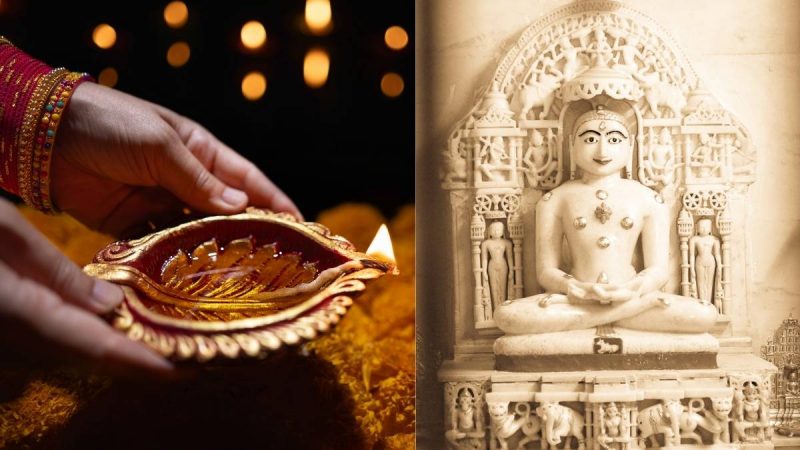Diwali is celebrated across India with great enthusiasm. However, the Jain community observes a slightly different version of this festival, known as Dipalikaya, which carries profound spiritual significance. Jain Diwali, like its Hindu counterpart, centers around light and prosperity but has its own rich history, traditions, and meanings.
Origins Of Jain Diwali (Dipalikaya)
Dipalikaya symbolises the victory of light over darkness. However, the Jain version of Diwali commemorates a monumental spiritual event—the attainment of moksha (liberation) by Lord Mahavira, the 24th and last Tirthankara of Jainism. For Jains, this day marks the ultimate victory of the soul over the cycle of birth and death. In fact, the tradition of lighting lamps began when the disciples of Lord Mahavira lit lamps to honour his passing into the eternal bliss of moksha.
Unlike the more secular and commercial interpretations of Diwali, Jain Diwali emphasizes the themes of renunciation, enlightenment, and the inner journey towards liberation. Jains believe that Mahavira’s teachings are the guiding light, illuminating the path to spiritual freedom. Therefore, Dipalikaya is less about material wealth or prosperity and more about the enrichment of the soul. Though the core beliefs and rituals surrounding Dipalikaya remain consistent, there are slight variations in how the festival is observed across different regions.
Also Read: Diwali Long Weekend: 10 Best Destinations Across India You Must Visit
Traditions & Observances Of This Diwali
As with the more widely known Diwali, the lighting of lamps or diyas is an integral part of Dipalikaya. The lamps represent the illumination of knowledge and the light of wisdom. Devotees often observe fasts to purify their bodies and minds and engage in deep prayer and meditation. They recite scriptures and pay homage to the teachings of Lord Mahavira. The Kalpa Sutra, a holy text that narrates the life of Mahavira, is commonly read and discussed. On Dipalikaya, Jains flock to temples to offer prayers and perform rituals. Puja (ritualistic worship) is performed, especially by offering nirvan laddoo, a symbolic sweet commemorating Lord Mahavira’s nirvana.
In some parts of India, Jains light 48 lamps in honour of the 48 hours following Lord Mahavira’s liberation, which are considered the most auspicious. The festival reminds us that true happiness lies not in external wealth or success but in freedom from desires and the attainment of spiritual wisdom.
In a world increasingly focused on materialism, Jain Diwali offers a powerful message of simplicity, compassion, and spiritual awakening.
Cover image credits: Canva

